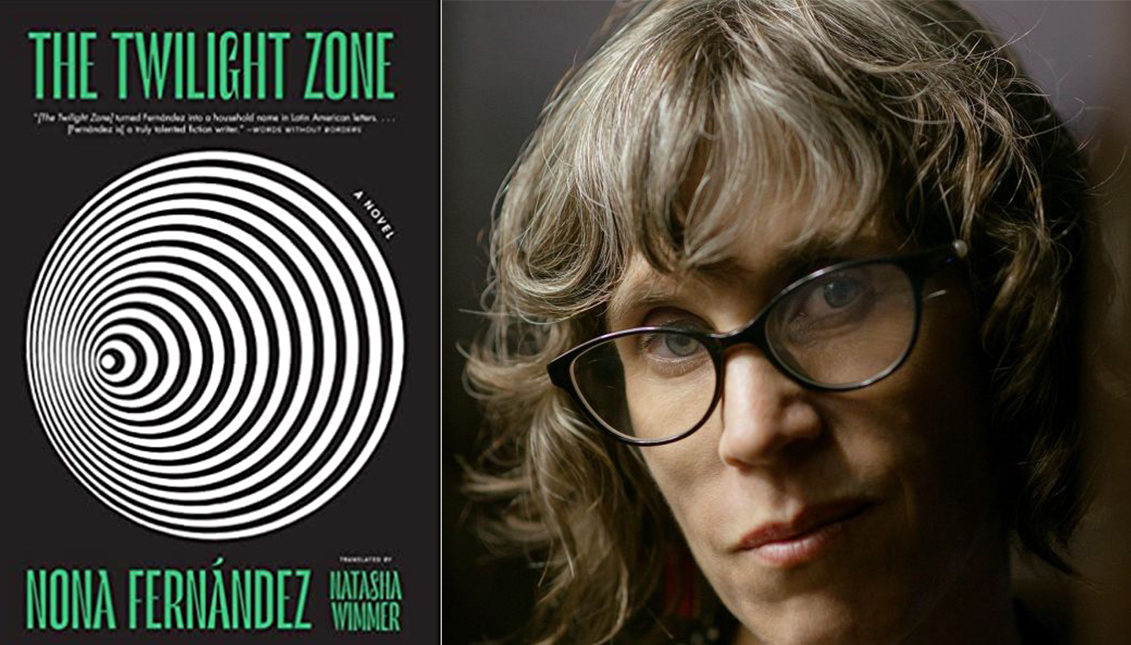
'The Twilight Zone': When life coexists with horror
Prisons in residential areas, executioners who confess and children who witness massacres. Nona Fernández again immerses readers within a Chilean dictatorship,…
The writer Junot Díaz said about The Brief Wondrous Life of Oscar Wao, a novel in which he delved into the cruel Trujillo dictatorship in the Dominican Republic, that there are dark regions of the past that a writer cannot reach through realism.
Perhaps for this very reason, the narrator uses the gaze of the child who is immersed in a tragedy that can barely understand at a young age to fill in some of the gaps in horror under the spell of fantasy. It's as Guillermo del Toro also did, but in cinema, with Pan's Labyrinth.
In the case of Chilean Nona Fernandez, one of the most interesting and forceful voices in Latin American literature, it is the childhood memories of a generation that lived under the yoke of Pinochet's dictatorship and to which she belongs. Those experiences drive a narrative where horror is shared between those who stayed and those who disappeared. Tortured. Murdered.
Using the same title as Rod Serling's iconic program, The Twilight Zone, which introduced thousands of viewers to science-fiction and its strange universes where time stretches or contracts, Fernández's book navigates somewhere between reportage and autobiographical fiction, and features those other hidden and everyday dimensions of the dictatorship where time doesn't work the same for survivors — long, very long — as it does for the executed — an eternity with a period.
The Twilight Zone begins with the arrival of a member of the Chilean Air Force secret service, Andrés Antonio Valenzuela Morales, at the offices of an opposition magazine.
It is the summer of 1984, the Pinochet dictatorship still has a lot of life left in it. But Morales needs to get a huge and painful weight off his shoulders and begins by telling the journalist what his work consists of: kidnappings, tortures, executions of all kinds. He talks about remorse. That guilt that escapes under the seams of his monster disguise.
Morales' testimony is real. It happened when he was 28 years old and he was then forced to flee Chile in desperation.
RELATED CONTENT
"My first intention was to write a John Le Carré-like spy story, but books are written in spite of one," the author explained to El País. "Doing interviews and researching in archives I found such delicate material that I couldn't use fiction."
One of the dilemmas of dictatorships is how a man can wake up next to his wife, kiss his children on the forehead, be a good father and a good neighbor, and then leave his house and shoot, electrocute or execute another person.
In fact, Valenzuela Morales found it unbearable. That was the alarm bell; he "failed to assimilate cruelty as something natural and inevitable," the writer said. He was in that phantasmagoric limbo of The Twilight Zone, in "that gray area where pain coexists with daily life."
Clandestine prisons in residential neighborhoods, a prisoner who in his delirium believes a UFO has come to save him, a father who is arrested while taking his children to school or a child who changes his name and life and witnesses a massacre. There are many pieces that make up this liminal space, this ordinary yet extraordinary horror that confronts us with ourselves on every page.
It forces us to ask ourselves a terrifying question:
What would we have done, would we have looked away and moved on with our lives?
The Twilight Zone, which won the prestigious Sor Juana Inés de la Cruz Award in 2017, will be released in bookstores in English version with translation by Natasha Wimmer on March 16, 2021.












LEAVE A COMMENT: